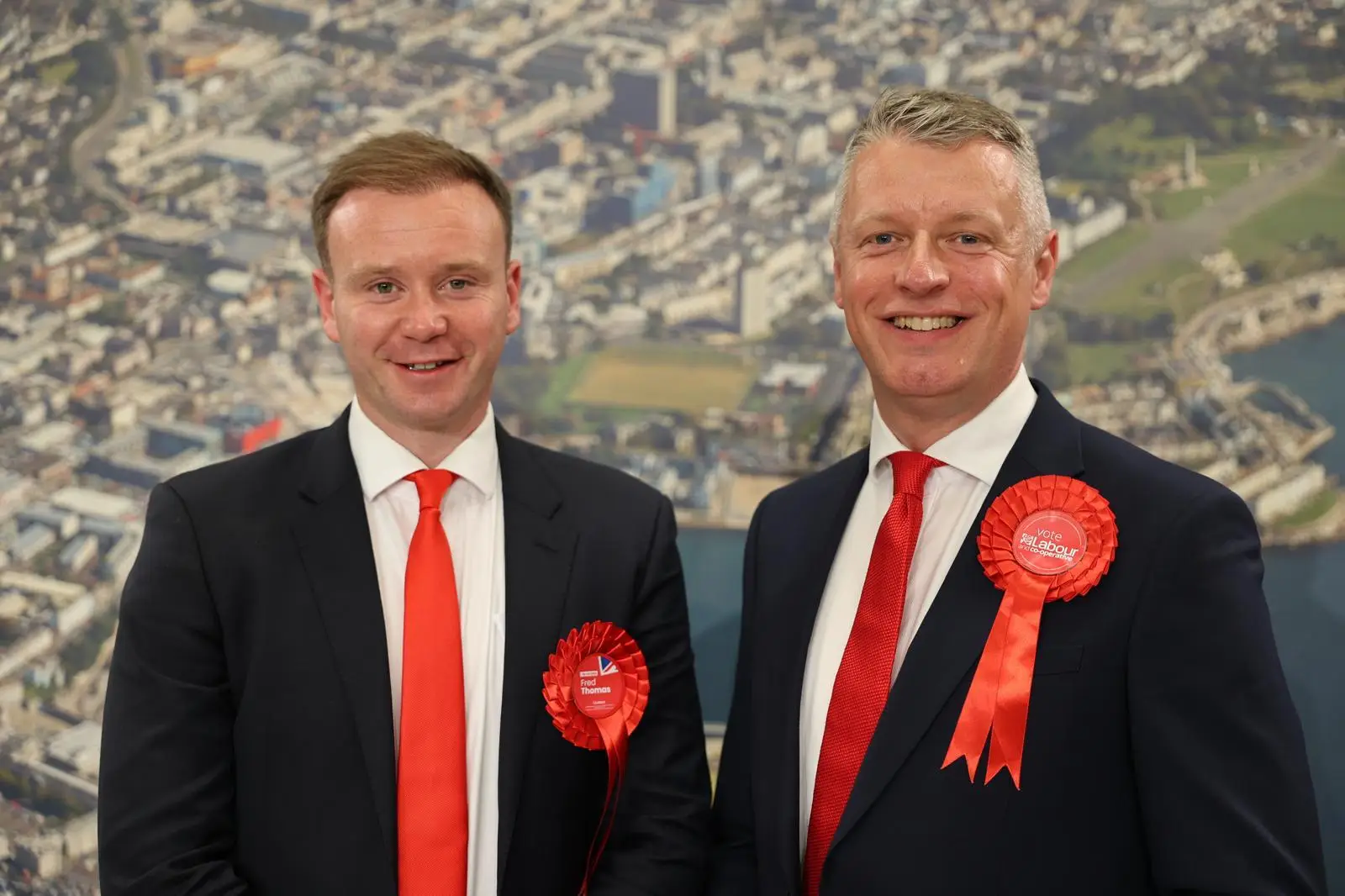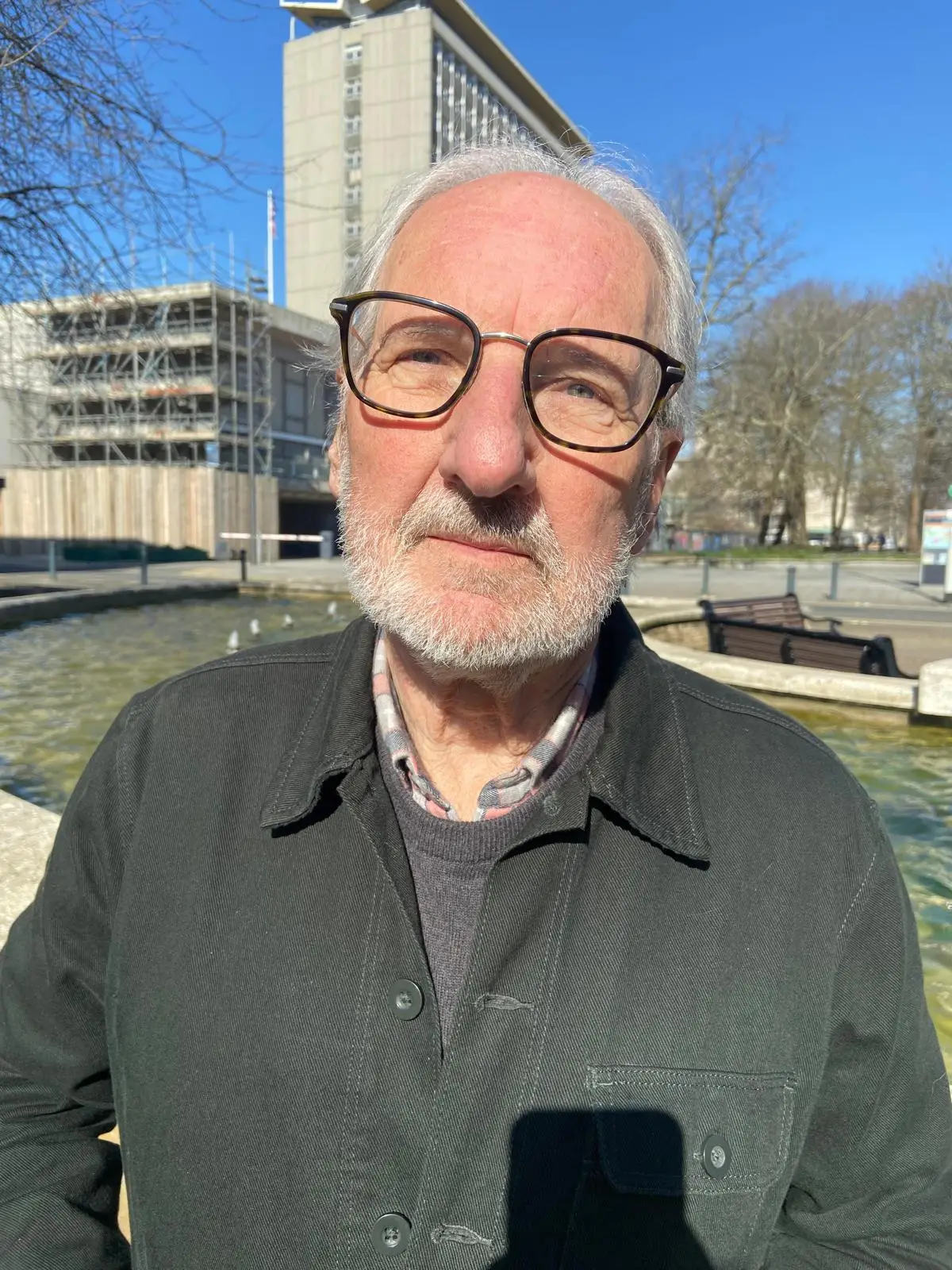Plymouth Knows Better
A City Mayor is bad for Plymouth
A City Mayor means more power for one person, less voice for everyone else. It’s a costly, failed experiment that other cities have already scrapped.
Vote No on 17 July
Why We're Saying No to a City Mayor for Plymouth
1. A Blank Cheque Plymouth Can’t Afford
The referendum alone is costing £410,000 – money that could be spent on our public services. But that’s just the start. The City Mayor model hands sweeping powers and a multi-million pound budget to one individual, with various estimated costs of around £1.5 million a year. In other places, like Tower Hamlets, the cost of a mayor’s office rocketed to over £5 million annually.
2. An Experiment That Failed in Other Cities
Just 14 places outside London have tried this model – and nearly half have already scrapped it, including Liverpool, Hartlepool, Bristol, Stoke and Torbay.
The verdict? Political chaos, wasted money, and power concentrated in one person’s hands. Plymouth deserves better than a re-run of a failed experiment.
3. An Outdated Model that the Government Plans to Scrap
The Directly Elected City Mayor system was introduced in 2000 – and even the Government now says it’s outdated. The Government plans to scrap city mayors in favour of Metro Mayors – models that come with actual powers and funding.
Why would Plymouth rip up what we have, at great cost, to adopt a system that’s on its way out?
4. No New Powers, No New Money
This proposal comes with zero new powers and zero new funding. Yet it will cost us more – an £80,000 mayoral salary (double the current leader’s), a personal team of political appointees, and ongoing taxpayer burden.
Let’s be clear: this is not a Metro Mayor like Andy Burnham. The cities held up as “success stories” by the Yes campaign use entirely different systems. There’s no evidence the model on offer at the referendum works – because it hasn’t, anywhere.
5. Wild Promises, Half-Truths and Unicorn Politics
The Yes campaign is full of big claims and zero evidence. They say a City Mayor will double Plymouth’s economy in 10 years – something no UK city has ever done, and is extremely rare globally.
One in five of the petition signatures that triggered the vote were ruled invalid – and many people we’ve spoken admit they didn’t understand what they were signing and regret doing so.
This is unicorn politics – magical thinking with no substance. If you hear a promise, ask: How? With what powers? What funding? What evidence?
6. A Personal Project, Not a People’s Movement
This isn’t a grassroots campaign. It’s being driven by Angus Forbes, a multi-millionaire property investor with no long-standing ties to our city. He’s called Plymouth “the most sensational piece of real estate in the UK.”
This isn’t about giving power to the people – it’s about giving more power to one person, backed by vested interests.
Protect Plymouth’s Future
Get updates straight to your inbox. Stay ready to vote NO and protect Plymouth’s voice.


Your questions answered
The Facts
What is a Directly Elected City Mayor?
Directly elected city mayors were first introduced in England following the Local Government Act 2000. This legislation gave local authorities the option to adopt a mayoral model of governance through local consultation or a public referendum triggered by a petition (like Plymouth is doing now).
Just 14 councils outside of London chose to adopt the model on offer at this referendum. Of these areas that voted to introduce it, nearly HALF – including Stoke-on-Trent, Hartlepool, Torbay, Liverpool, and Bristol – returned to the leader-and-cabinet model that Plymouth has now.
Directly elected city mayors are granted executive powers which include:
- Setting overall direction for the council -> one person deciding all matters, rather than a leader who is accountable to councillors
- Leading on budget and policy decisions -> controlling city budgets with far reduced local democratic accountability
- Making appointments to the cabinet -> which still have to be picked from local councillors
It is important to distinguish between local authority mayors and combined authority or “metro” mayors, who operate at a regional level and have access to devolved powers and additional funding from central government. The mayor being proposed for Plymouth in this referendum would be a local authority “city” mayor only with no extra funding or powers that metro mayors do.
Who pays? You do.
A city mayor isn’t free. It’s a costly and unnecessary political experiment that will drain public funds that should be used for your services.
Having a city mayor hands a blank cheque for the city’s finances to one individual, with some estimates putting the cost at £1.5m a year. That’s money that should be spent on things that actually improve a local area, such as:
- More frequent bin collections so our communities stay clean.
- Fixing potholes and roads so our streets are safer
- Better care for our elderly and vulnerable residents.
- More investment in housing and tackling homelessness.
Instead, this money could go towards:
- A mayor’s salary – this would be significantly higher than what the council leader earns now. The Mayor for Plymouth campaign want this to be a whopping £80,000 – double what the current leader of the council is paid
- New political insiders and offices to support the mayor’s position.
- More bureaucracy instead of real action.
This is not just speculation – it’s what has happened in other cities that brought in a city mayor. Cities that then went on to abandon the model.
What's the evidence that a city mayor will cost £1.5m a year?
This figure isn’t speculation. The Leader of Plymouth City Council is on the public record estimating the cost of a city mayor at £1.5 million per year. When you look at both local history and what’s happened in other places, there’s strong evidence this figure is not only credible – it might even be an underestimate.
Previous Plymouth estimates – adjusted for today
Back in 2001, when Plymouth last held a referendum on whether to introduce a city mayor, the estimated cost was £1 million per year. Using the Bank of England inflation calculator, that would be around £1.8 million in 2025. So the £1.5m estimate being used today is a sensible, grounded figure that reflects inflation and likely costs.
Other places show how costs escalate quickly
Cities that have moved to a directly elected mayor have faced significant – and sometimes spiralling – costs:
- Tower Hamlets: City mayor Rahman spent over £400,000 on office upgrades, including £50,000 on a meeting table and £25,000 on a kitchenette. He then tripled his personal staff team, bringing the total annual staffing cost to £1.4 million. The overall cost of his office is now estimated to exceed £5 million.
- Bristol: The city mayor’s office included 12 directly employed staff, before the public voted to scrap the city mayor model. These staffing costs were over £1 million a year in today’s money. This was one of the reasons that Bristolians voted to get rid of the city mayor model after trying it out.
- London: The cost of the Mayor of London’s Office in 2020-21 was £6 million that year alone, even for a more senior metro mayor role covering a larger area. It shows how quickly mayoral systems can become expensive.
- Devon & Cornwall Police and Crime Commissioner (PCC): While not a city mayor or metro mayor, the local Police Commissioner role still offers important lessons about the cost of creating and maintaining an additional political office. In 2013/14, the total cost of the PCC’s office (excluding grantmaking) was £1.61 million. By 2025/26, that’s budgeted to rise to £2.96 million, with total costs under the PCC’s control increasing from £4.24 million to £8.54 million in the same time period. If the same proportions were applied to Plymouth City Council’s equivalent budget, we’d be looking at around £5 million a year in total spending under a directly elected mayor, and around £1.7 million a year just to run the mayor’s office. This shows how easily costs can scale – even in roles outside the mayoral system – once new structures and powers are introduced.
Where does the money go?
Creating a city mayor doesn’t just mean a new salary. It often brings:
- A new team of political staffers and consultants
- Office refurbishments and sometimes new premises
- Expanded communications and PR functions
- Running additional elections
- Duplicating structures and creating new layers of bureaucracy
These are real, recurring costs observed in cities across the UK.
But doesn’t the Yes campaign say this will save money?
Yes – but their claims don’t stack up under scrutiny. They rely on assumptions, not guarantees, and ignore real-world outcomes.
Here’s a breakdown of their proposed “savings” – and why they don’t hold up:
- Election cost savings are speculative: The claim relies on switching to four-yearly all-out elections, but this isn’t something a city mayor can deliver alone. It requires a separate formal process. Including it as a guaranteed saving is wishful thinking.
- Reducing cabinet size is not guaranteed: The Yes campaign assumes a mayor would reduce the cabinet from 9 to 4 members. But a future mayor could just as easily expand their overall team, as many have done elsewhere. There is no binding commitment to shrink the cabinet or reduce political appointments.
- Democratic member support savings are based on assumptions: There’s no clear reason why this spending would automatically fall. In other cities, mayoral systems have increased staffing and support costs.
- “Removing a senior officer” is purely speculative: There’s no guarantee this would happen, and in many cases, new leadership structures add rather than remove senior posts.
In short, the savings the Yes campaign promises are based on guesswork, not fact – and they’re contradicted by what’s actually happened in cities that have adopted a mayoral system.
More power, less scrutiny
A city mayor would make it harder for councillors to make the person in charge accountable on spending, staffing, and office costs. Once elected, they can reshape their team, office, and priorities – and history tells us they often do, with expensive consequences.
Conclusion
The £1.5 million figure is grounded in evidence, history, and experience. The supposed “savings” put forward by the Yes campaign are not based on any binding commitments – and many cities that have adopted city mayors have ended up spending more, not less.
Isn’t this what other cities are doing?
No, not really – only 14 places outside of London have ever had this model, and many cities that did then chose to scrap them! Torbay, Bristol, Hartlepool, Liverpool, and Stoke-on-Trent are all places that abandoned this model after trying them out. In those places, many have regarded them as a costly, failed experiment and voted to return to the model that Plymouth has now, wasting lots of taxpayer money in the process.
We are concerned that the Mayor for Plymouth campaign are deliberately conflating local authority city mayors (what’s on offer at this referendum) and combined authority “metro” mayors, who operate at a regional level and have access to devolved powers and additional funding from central government. The mayor being proposed for Plymouth in this referendum would be a local authority “city” mayor only with no extra funding or powers that metro mayors do.
Who actually benefits from a Directly Elected City Mayor?
Not residents. Not workers. Not pensioners.
Instead, a city mayor means:
- More power in the hands of one person.
- Less scrutiny over big money contracts.
- A system where decisions are made behind closed doors, without the democratic oversight we currently have.
Our Council, like any, isn’t perfect, but Plymouth does not need a mayor with unchecked power.
We want a local council that listens to the people, not one person who answers to no one. This is why many other cities like Bristol, Torbay, Liverpool, and Stoke-on-Trent scrapped their city mayor – they saw for themselves how bad it was for their cities and that it was a bad deal.
Won’t a City Mayor make Plymouth more democratic?
No – it will do the opposite. Right now, if the council leader isn’t doing their job, councillors can remove them. Just like what happened after the night of the Armada Way Trees felling. With a city mayor, we’re stuck for four years waiting until the next election until we can get rid of them.
If it’s such a bad idea and the position will be scrapped, why is the referendum happening?
The referendum is happening because a small group of residents submitted a petition calling for one. Under the Local Government Act 2000, if 5% of the local electorate signs a valid petition, the council is legally required to hold a vote. In Plymouth, that threshold was around 9,700 signatures. The council is now legally obliged to run the referendum – at a cost of £410,000 to the taxpayer.
Meanwhile, the Government has made clear it intends to scrap directly elected city mayors altogether. In December 2024, the English Devolution White Paper stated they will “discontinue the individual Local Authority devolution model in its mayoral form” and the MJ recently reported that “Senior Whitehall officials are keen to scrap directly-elected council mayors”.
It is expected that the Government will publish more details on how the position will be scrapped later this year, but the direction is clear: this model is on the way out.
Voting for a city mayor now is like paying for a wedding when you know the relationship is already over. It’s flogging a dead unicorn.
Why is a millionaire spending money on this referendum?
The Mayor for Plymouth campaign is led and funded by multi-millionaire, investor and serial property owner Angus Forbes. We don’t know why Mr Forbes is so determined to bring a Directly Elected City Mayor to Plymouth, but we do ask who exactly stands to gain from this. Mr Forbes talks about democracy and giving people a voice, but how does concentrating power in one person actually achieve that? Why does someone with clear ties to the property and business elite, who has only lived here for less than three years, want to concentrate power in one position? Is this really about the people, or about securing greater influence for those already at the top of the pile?
Voices of Plymouth
The Plymouth Knows Better campaign is: first and foremost a group of Plymouth citizens who care deeply about our city and have deep ambition for our future. Some of us are community campaigners, health workers, veterans, and yes - even some local politicians from across different political parties. We don’t claim the council is perfect - but we are all united in caring passionately about our city and its future. Here’s why we will be voting against the unicorn politics of a directly elected city mayor for Plymouth:





& Fred Thomas MPMembers of Parliament




Contact
Have a question about the referendum? Want to get involved with the campaign?
We’d love to hear from you.
✅ General enquiries
✅ Volunteer to help
✅ Report misinformation by other campaigns
✅ Media and press requests
Drop us a message using the form below or email us at [email protected].
We’ll get back to you as soon as we can.
Prefer to email directly?
How to help
Plymouth has rejected a City Mayor before. Let’s do it again.
Sign up to the mailing list today
Stay informed, get campaign updates, and find out how you can help stop a City Mayor for Plymouth.
Tell your friends, family, and neighbours
Every conversation counts. Talk to your friends, share posts on social media - Help spread the word and make sure everyone knows why we need to vote NO.
On referendum day,
VOTE NO
Your voice matters. Protect Plymouth’s future by voting NO to a costly, unnecessary City Mayor on 17 July.